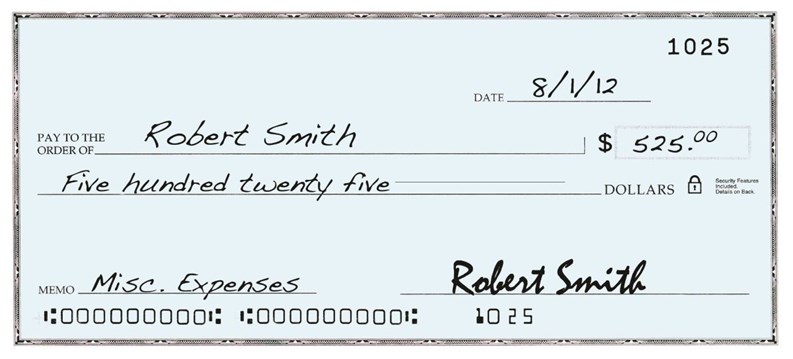One of the trickier problems to deal with when you live in a co-op or condo is dealing with board members who sometimes let the power go to their heads. Even though they are entrusted with a great deal of responsibility to keep their association board running efficiently, it’s important that board members don’t cross the line and use their position to unduly influence the building’s day-to-day operations.
“The most common place where conflicts of interest arise is when you have vendors of equipment that the building wants to use and that vendor happens to be on the board,” says Jim Peterson, board president of a Lake Shore Drive condo in Chicago. “If the board wants to use that particular vendor because what he has to offer is very good and very reasonable and very reliable, it can be a big conflict. It happens all the time. You’ll have suppliers with high quality stuff and good prices and they live in the building and sometimes they are on the board.”
In these cases, the board member stands to profit financially from mixing his two interests and may be tempted to put the interests of his business ahead of the interests of the building. When that happens, the board member runs the risk of breaching his fiduciary obligation to the building. “What happens in that instance is that the board member should recuse himself from voting,” says Peterson. “In certain cases, we will use them because it could be in our own self-interest. You don’t want to shoot yourself in the foot to avoid conflict. You don’t want to avoid conflict—you want to deal with it.”
Nothing undermines a community’s faith in their leadership faster than things like impropriety and self-dealing amongst the board/management team, or even the implication that these things might be going on.
Avoiding Problems
Living in close proximity to others, along with a sense of loss of control, gives rise to a whole host of different types of disputes. Adding a conflict of interest problem into the mix can make the situation even more volatile. Common sources of conflicts of interest are directors and management companies who directly or indirectly are connected to companies that the association may currently use or consider hiring.
“If a management company has painting contracts or landscaping contracts or janitorial services in which they are a principal owner and hires one of these companies without disclosing that they have ownership or a stake in them, that’s a conflict of interest,” says Jim Evans, CPM, and president of the Institute of Real Estate Management (IREM), an international professional real estate management organization serving the multifamily and commercial real estate sectors. “I have a firm policy in my office that any contractor that does business with any of our clients cannot do business with the property management company. So we can’t get accused of getting our lawns cut for free because we gave the lawn company all of this business.”
Some board members try to get away with having pets in a no-pet building, having jobs done for free (such as landscaping) in exchange for hiring a contractor, or hiring friends or family to do something in the building. Some examples include a board member allowing an unlicensed painter to work in his apartment, approving a sales application that otherwise might not be approved.
“In our association, the bylaws clearly state that you can only have one pet and one of the board members had three dogs, it was an open secret,” says Aurelio Carmona, board president of Riverview Condominiums in Lyons, “So when I became president two years ago I told her that she was violating the bylaws. The big problem was that her dogs were going on the front of the property and damaging the landscaping and she wasn’t cleaning it up. She figured that since she was a board member the rules didn’t apply to her. We had some arguments about it. We eventually settled it, we amended the bylaws for her and she agreed to walk her dogs down the street.”
Other conflicts of interest are not as obvious as the examples above. Perhaps the association is trying to decide if they wish to pursue a noise violation when the only complainant is a member of the board who lives next door to the accused violator.
In this case, the director with an interest at stake would be best served by disclosing that interest, making his or her case to the board in the same manner any other owner would and then letting the rest of the board vote on the matter.
The Illinois Condominium Property Act (ICPA) states that “board managers may not enter into a contract with a current board member or with a corporation in which a board member or a member of a board member’s immediate family has 25% or more interest, unless notice of intent to enter the contract is given to unit owners within 20 days after a decision is made to enter into the contract and the unit owners are afforded an opportunity by filing a petition, signed by 20% of the unit owners, for an election to approve or disapprove the contract; such petition shall be filed within 20 days after such notice and such election shall be held within 30 days after filing the petition; for this subsection, a board member’s immediate family means the board member’s spouse, parents and children.”
The best rule of thumb for everyone—for the board member, the manager, and the building—is to avoid all situations in which even the appearance of a conflict of interest is present.
Cause and Effect
Conflicts of interest that are either overlooked or allowed to continue can create real damage to community morale as well as to undermine the credibility of the governing board.
To help clients avoid conflict of interest issues, a manager should be conversant in the regulations articulated by the Illinois condominium act. Additionally, the manager must equally be familiar with the co-op or condo’s documents and bylaws, which also will likely address conflicts of interest.
“In today’s day and age, when condos are having so many issues, conflict of interest is definitely an issue,” says Evans. “Conflict of interest can be simply avoided if everyone is upfront with all of their abilities and connections and affiliations. This is an ongoing problem and it always needs to be addressed. The board needs to know who their management company is and what they stand for and are not afraid to ask uncomfortable questions like ‘what is this charge for?’ or ‘why did you do this?’ or ‘how come this company always seems to get the bid?’ If it doesn’t pass the smell test, it stinks.”
When certain conflicts of interest occur, it’s the community that suffers. As an example, if a management company has a financial interest in a vendor, not only is it hard to be sure that the association is getting the best pricing, but if that vendor is failing from a performance perspective, it is not in the management company’s best interest to recommend a change as they will be losing business.
Family Matters
Let’s say a board member acting in good faith hires a family member to do interior maintenance work in their building and something breaks. This is a serious problem that you are better off not even giving yourself the chance to get involved in. “First of all, I’ve informed all of our homeowners that if they do hire family members or other contractors for that matter, they will be liable for any potential damages that may occur,” says Carmona. “All of our townhomes are connected and we just have firewalls in between so if any contractor damages or goes through the wall and damages the next unit they are responsible. They can have their brother or uncle or sister do work inside of their property but they have to be careful.”
Boards would be well-advised to establish clear policies and boundaries to determine where liability would rest and who would compensate the building if damage occurs. Boards who learn the hard way—either through criticism or in the most extreme cases recall from the board—that hiring a family member or friend was a bad idea from the get-go, often don’t repeat the exercise.
“Good communication will always win out and if you are trying to hide something people will know,” says Evans. “A good management company or board has nothing to hide. You must make sure that you are communicating with the board if you are a management company and vice versa. When that doesn’t happen people get frustrated and something that could have been fixed very, very simply all of a sudden gets blown out of proportion or there’s hurt feelings and the relationship is irreversibly harmed.”
Keith Loria is a freelance writer and a frequent contributor to The Chicagoland Cooperator.







Leave a Comment